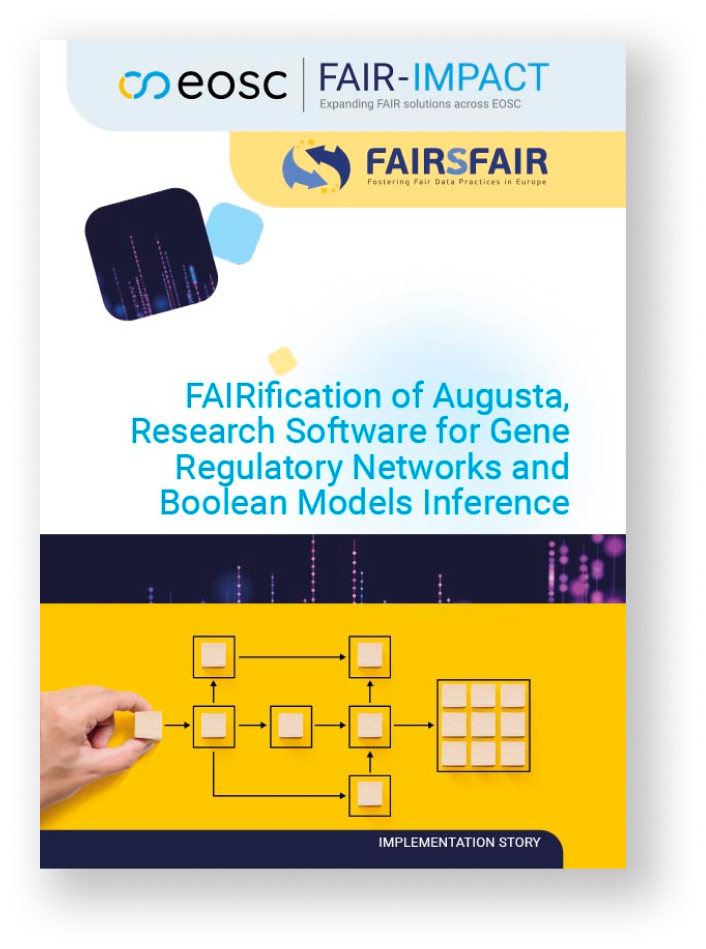FAIRification of Augusta, Research Software for Gene Regulatory Networks and Boolean Models Inference
Software plays a crucial role in academic research, not only as a tool for data analysis but also as a research outcome or result, or even the object of research itself. FAIR (Findable, Accessible, Interoperable, Reusable) research software can increase the transparency, reproducibility, and reusability of research. For this to happen, software needs to be well-described (by metadata), inspectable, documented and appropriately structured so that it can be executed, replicated, built-upon, combined, reinterpreted, reimplemented, and/or used in different settings. The FAIR4RS Principles aim to guide software creators and owners on how to make their software FAIR. FAIR-IMPACT offered two support actions designed to enhance the FAIRness and impact of research software:
- Assessing and improving existing research software using a new extension of F-UJI which implements some of the metrics for automated FAIR research software assessment.
- Implementing the Research Software MetaData (RSMD) guidelines for better archiving, referencing, describing, and citing research software artefacts.
This FAIR Implementation Story outlines the specific aims and actions of the Brno University of Technology in relation to their participation in the first (F-UJI) support action.
"You should always think of FAIR-RS metrics from the beginning to the end of the computational research tool development process. While you can always address them retrospectively, you will unnecessarily lose potential users of your software."
Supported applicant: Karel Sedlář, Jana Musilová, Brno University of Technology
